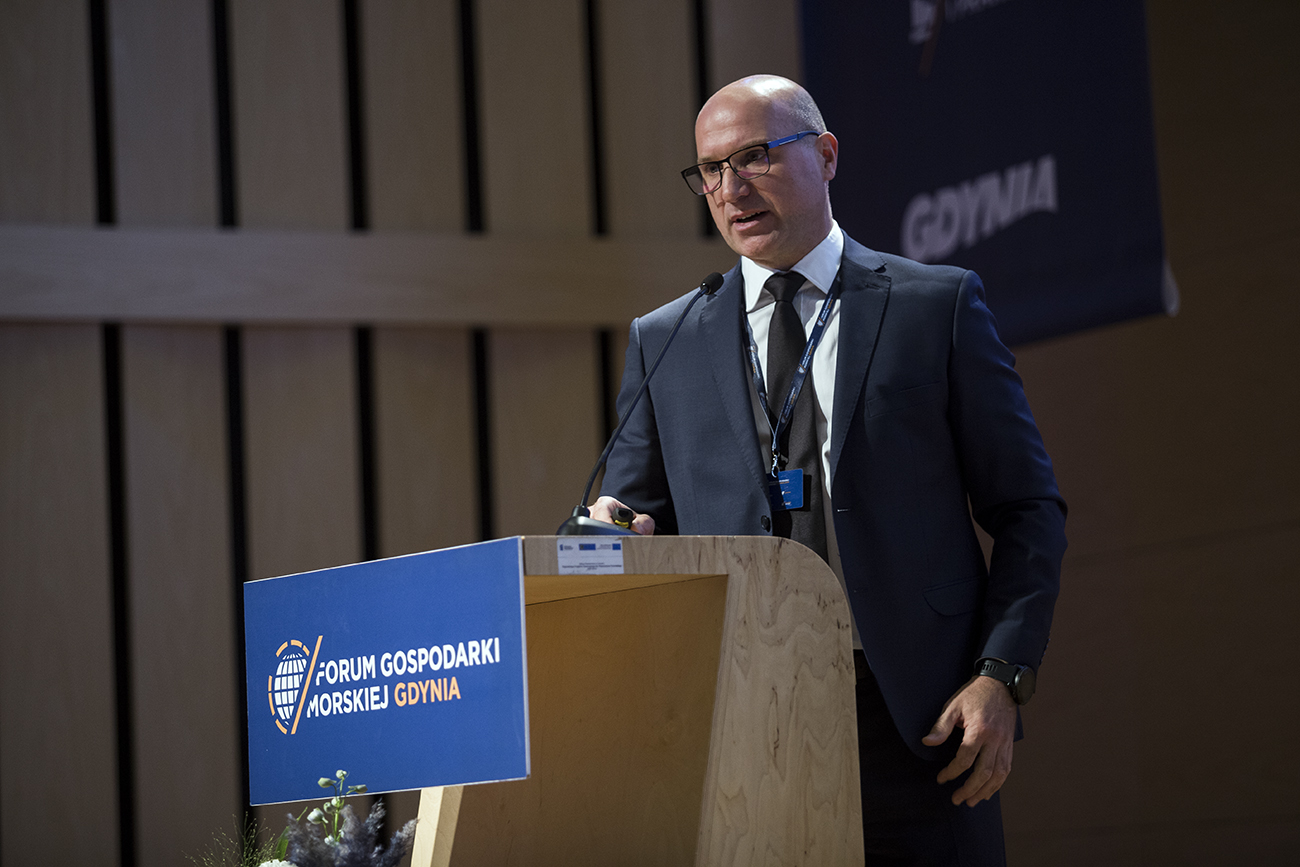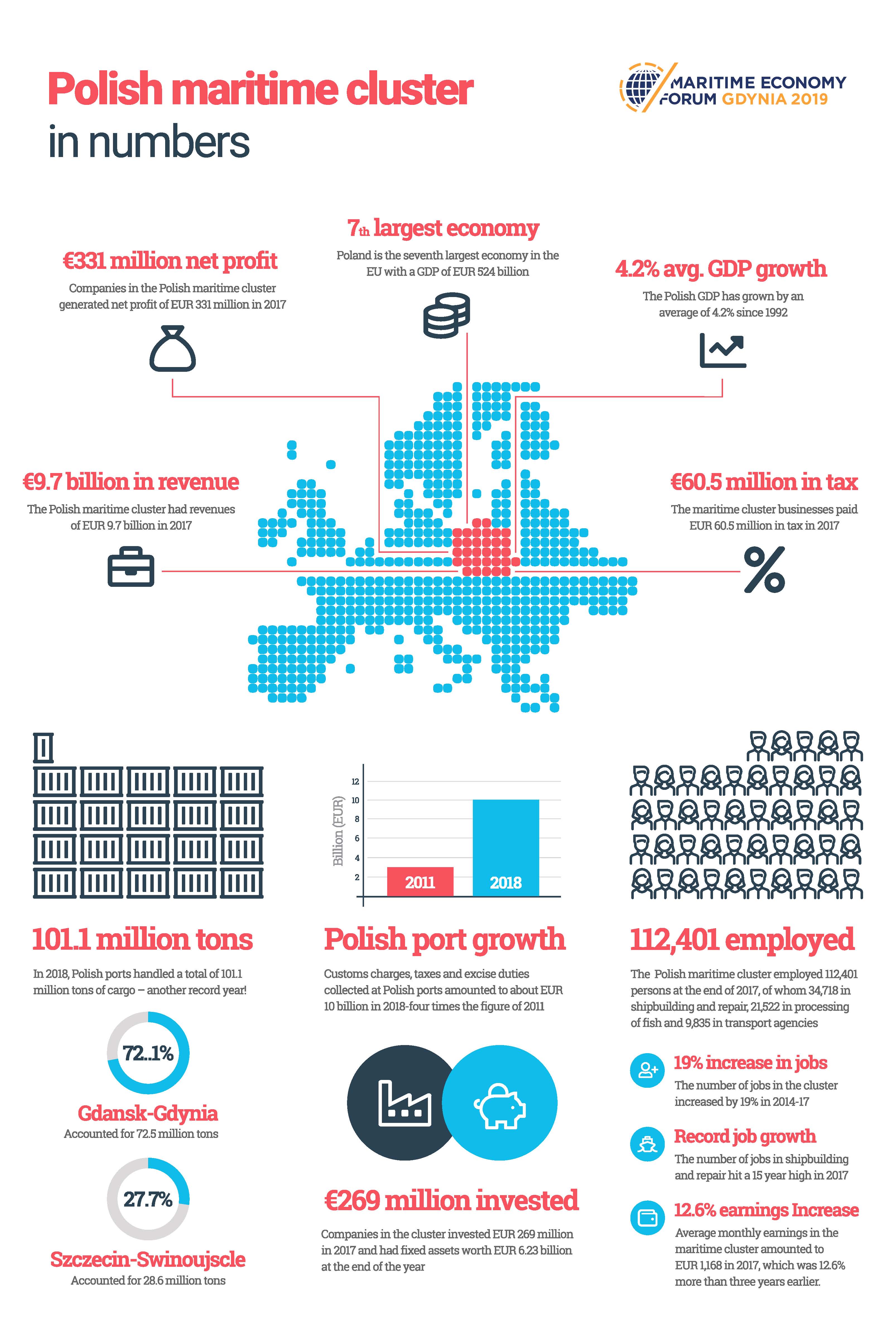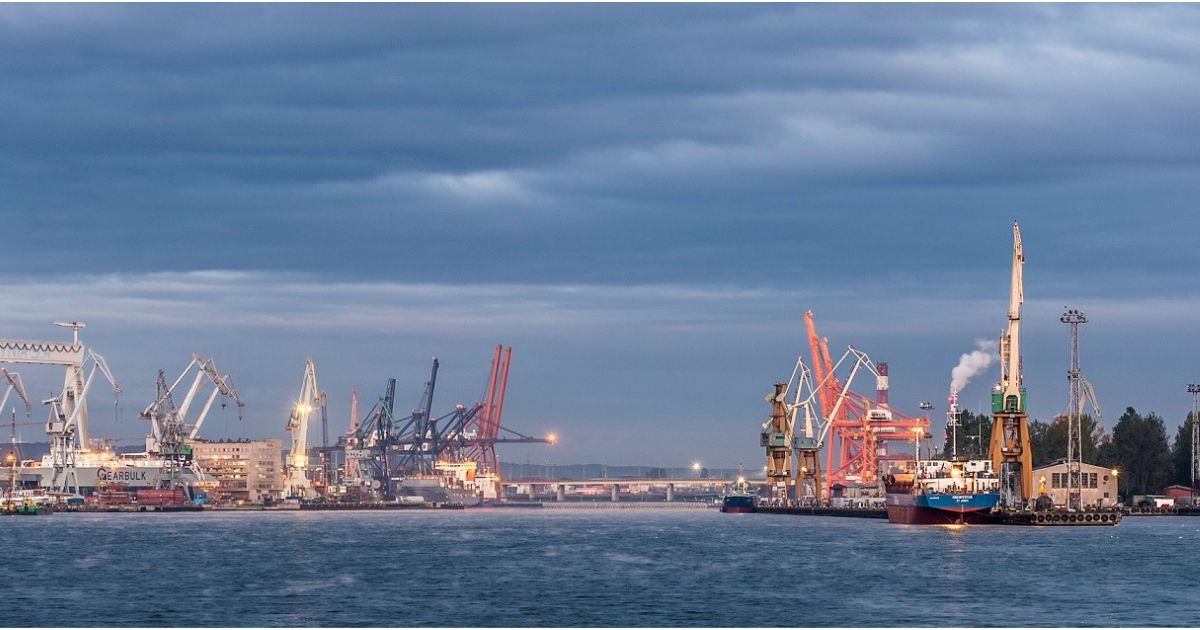Poland’s leading maritime thought-leadership conference heard that the country is set to become one of the biggest centers in Europe for offshore wind, turbo-charging billions of Euros of investment.
The Maritime Economy Forum Gdynia was told that the investment will create a ‘boom’ in the offshore wind sector generating an estimated 77,000 jobs and 14.1billion Euros for the economy by 2030. Poland’s biggest energy company PGE presented forecasts to the conference showing Poland’s Baltic Sea has the capacity to generate nine to 12GW of energy ranking it second only to the North Sea, which has capacity for 13GW. In total 13 windfarm projects are under consideration in Poland’s Baltic Sea territory with an ambition to generate 25pc of Poland’s energy by offshore wind by 2040. The plan currently being debated is for 4.6GW to be installed by 2030, scaling up to 6GW by 2035 and 10GW by 2040.
 Radosław Pachecki, Maritime Logistics Project Manager with PGE’s offshore company PGE Baltica
Radosław Pachecki, Maritime Logistics Project Manager with PGE’s offshore company PGE Baltica
Radosław Pachecki, Maritime Logistics Project Manager with PGE’s offshore company PGE Baltica said the company is looking to build three windfarms with an option to develop more of the 13 ‘concession’ sites together with other energy companies. He reported new positive findings from a 20-month feasibility study PGE has undertaken into the Baltic Sea’s suitability for offshore wind. He said the report, which is still ongoing, has found favorable wind speeds, relatively low sea depths and calmer sea conditions than the North Sea. He said PGE now has confidence that the business case for building windfarms is ‘cost optimized’ with overheads dramatically reduced due to better technology and know-how.
Work on PGE’s windfarms, which will generate 2.5 gigawatts of power combined, is due to start in 2022 and be installed by 2035. The proposed windfarms are situated 20 kilometers from the Polish coastline and are expected to create maintenance work for 18 years with the first electricity coming online in 2025-2026. (see notes to editors 1)
 Polish maritime industry Infographic
Polish maritime industry Infographic
The conference also heard that Europe’s energy demands are set to soar. Iain Shepherd from the European Commission’s Directorate-General for Maritime Affairs and Fisheries reported by 2050 Europe will require twice as much electricity with 80-85pc coming from renewable sources while by 2030 four times as much energy is expected to be generated by offshore. He said this ‘enormous change’ will drive massive opportunity for supply chain businesses across Europe for steel manufacturing, cables and components.
Adam Meller, meanwhile, the Port of Gdynia Authority managing board President laid out the biggest infrastructure program ever seen at the port, with environmental considerations and green energy at their heart. He said the plans include an investment in dredging the port so it can accommodate larger vessels as well as reconstructing 1501 meters of wharfs (see notes to editors 2). But he cautioned that as a city center based port air quality was paramount and the port would adhere to all emissions restrictions meaning visiting vessels must meet ‘the lowest possible levels of emissions’. He further announced a complete replacement of the railway system at the port with renewable alternatives being examined such as hydrogen powered trains. Mr. Meller confirmed that work on the Port’s new 67million Euro passenger ferry terminal, which is the part of the motorway connecting Sweden and Poland - has now officially started and will massively improve passenger efficiency (see notes to editors 3).
Wojciech Szczurek the mayor of Gdynia said the forum sent the most powerful messages in its 19-year history that Poland is about to enter a new era of huge investment and opportunity in its maritime and offshore industry.
“The Baltic windfarm project provides massive opportunities for the Polish maritime engineering sector, the ports industry and the sector globally,” he said. “It is fantastic to see our maritime industry join forces with the energy sector to put the infrastructure in place to build these huge windfarms. And we want to ensure work can start as soon as possible. Poland’s current energy demand is 41 gigawatts and growing. But with the coal power stations coming to the end of their life we know by 2035 it will be necessary to close down 20 gigawatts of aging coal power stations in Poland. As a result, there is a massive responsibility to make the Baltic windfarm happen. I know the city of Gdynia and our maritime sector is ready, willing and able to do all it can to support this project which stands to generate so much work for our region and Poland’s small businesses, the backbone of our economy, as well as create tens of thousands of skilled jobs for young people – our future workforce.”
To help support the Baltic windfarm project two of the prime organizations leading Poland’s offshore sector signed an agreement at the MEFG. The Polish Offshore Wind Energy Society and the Polish Maritime Technology Forum partnership agreed a deal to encourage knowledge exchange and cooperation between a wide range of businesses and stakeholders in the offshore and maritime sector.
MEFG chairman Slawomir Kalicki said the conference had shown that the Polish maritime sector is on an upward trajectory.
“The Polish maritime industry has a very bright future,” he said. “The industry now employs more than 112,000 people and generates more than €9billion euros for the economy. This year we have seen new figures released showing Poland’s three major ports Gdansk, Gdynia, Szczecin broke all records in 2018 by handling more than 100 million tonnes of cargo for the first time, a 16pc increase on 2017 (see notes to editors 4). Moreover, we are seeing a renaissance in our shipyard sector with more than 34,000 people employed in the industry, the highest level since 2002. Poland’s ‘blue economy’ is being driven by the strong performance of the Polish economy that has grown at an average rate of 4.2 per cent a year between 1992-2019, to become the seventh largest economy in the EU with a total GDP of €524 billion (see notes to editors 5). This growth is supported by infrastructure investments, including €208billion in EU funding between 2007 and 2020, across the Polish hinterland. As a result, Poland is becoming a more efficient, competitive maritime nation where our ports and shipyards are some of the most important on the Baltic Sea. This was another very successful forum.”
The MEFG featured almost 40 speakers and attracted more than 600 senior figures from the maritime sector. Further events during the forum included a seminar entitled: “Tourism from the Sea”, and the winner of this year’s movie competition, for young film makers, promoting the maritime economy was announced – “Skok” (“The Jump”) by Rafał Wojczal took the first prize. The film was showcased at the forum’s famous evening celebration the ‘Duck Dinner’ which was attended by more than 2000 guests.
The organizers of the Maritime Economy Forum Gdynia are the city of Gdynia and the Gdynia Development Agency. The event was held at the conference center of Pomeranian Science and Technology Park Gdynia under the patronage of the Ministry of Maritime Economy and Inland Navigation, the Maritime Office, the Polish Investment and Trade Agency and the Polish Chamber of Commerce as well as other non-government organizations. The Port of Gdynia was the strategic partner for the event.
For more information, click here.


